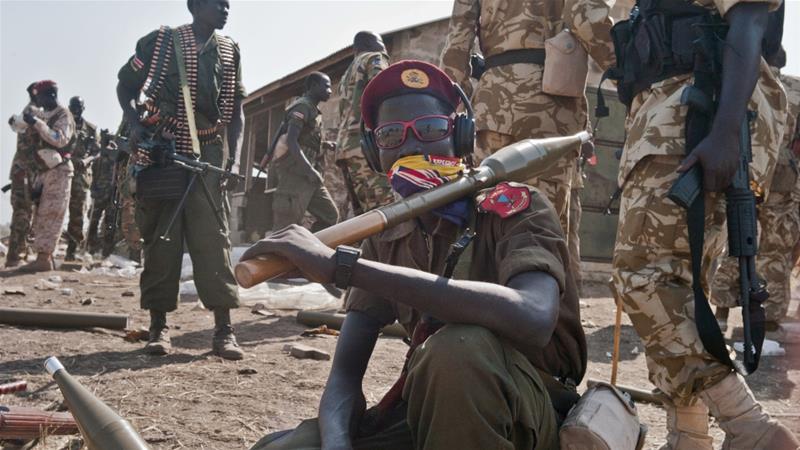South Sudan’s warring parties agreed on Friday to delay the formation of a power-sharing government, just days before it was due to be installed in the capital Juba.
The parties met in Ethiopia’s capital Addis Ababa to agree on a way forward on forming a national unity government, part of the peace agreement signed by the two sides in September.
They had failed to resolve several crunch issues as the May 12 deadline loomed for creating a unity government with Machar as vice president.
His camp wanted a six-month delay to resolve security and other issues that, it says, prevent him from making his return from exile to Juba, which he fled in 2016 when a prior peace agreement collapsed.
The government wanted the meeting to focus on forming a joint administration in Juba.
But both parties agreed to push back the deadline at the talks hosted by the Intergovernmental Authority on Development (IGAD), a regional bloc for East Africa.
“The Parties identified lack of political will, financing and time constraints as the major challenges that have delayed implementation of the Pre-Transitional tasks,” IGAD said in a statement.
IGAD’s South Sudan special envoy, Ismael Wais, said both parties had avoided a crisis by agreeing to iron out the unresolved aspects of the deal rather than pushing ahead too early.
“Everybody is asking the question what comes next. Would there be a problem if the implementation of the agreement a failure, have we failed already,” he said.
“Now, this meeting proved all the South Sudan parties are committed to the peace agreement.”
The extension requires approval next week by a council of regional foreign ministers from Ethiopia, Sudan, South Sudan, Djibouti, Somalia, Kenya and Uganda.
The peace deal that was signed in September ended a five-year civil war that killed about 380,000 people and displaced millions. Key elements of the agreement have yet to be implemented, including drawing South Sudan’s internal boundaries and creating a unified national army.
The previous peace deal signed in 2015 also had Machar return as Kiir’s deputy but it ended in gunfire as new clashes erupted in the capital, Juba, in 2016, forcing Machar to flee the country.
Some look at the new agreement with scepticism.
“Even if you give Salva Kiir and Riek Machar 1,000 years they will never implement any peace deal together. The duo should never work together. The [East African bloc] should try another formula,” said Jacob Chol, senior political analyst and professor at the University of Juba.
The parties need to reach an agreement but the question is will “we be in any different position six months from now?” asked Alan Boswell, senior analyst with the International Crisis Group.
Meanwhile on Friday, President Salva Kiir lifted a state of emergency in northern parts of the country, state radio reported.
South Sudan Radio said that Kiir had lifted the state of emergency imposed in 2017 in the states of Tonj, Wau, Aweil East, Gogrial and Western Lakes.





